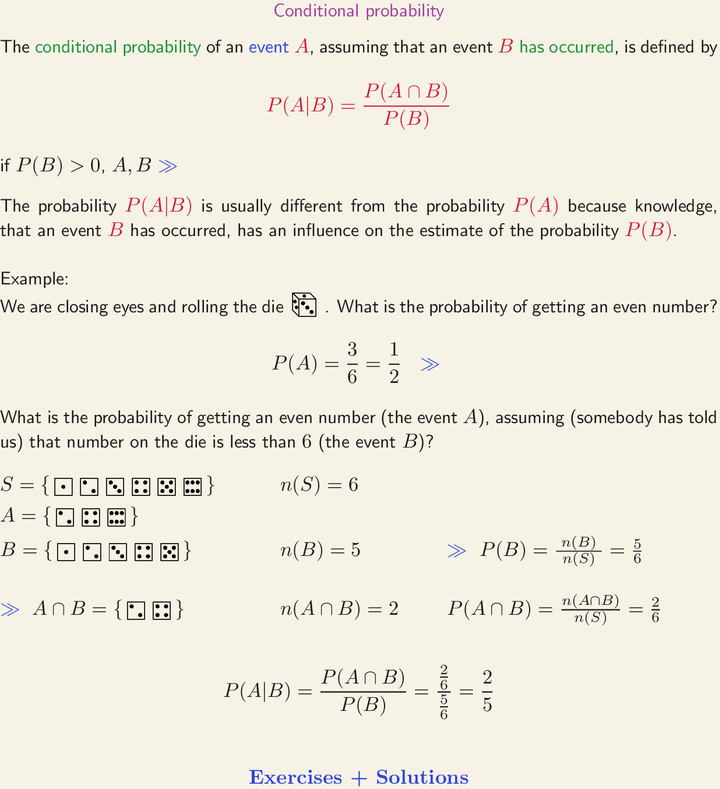mathinschool.com
numbers and algebraic expressions
logic, sets, intervals
absolute value
function and its properties
linear function
quadratic function
polynomials
rational function
exponential function
logarithm
number sequences
limits of sequences and functions
derivative and integral of functions
trigonometry
plane geometry
analytic geometry
solid geometry
combinatorics
probability
elements of statistics
kropki game

The conditional probability of an event A, assuming that an event B has occurred, is defined by P(A|B) = P(A∩B) / P(B). if P(B) gt; 0, A, B ⊂ S. The probability P(A|B) is usually different from the probability P(A) because knowledge, that an event B has occurred, has an influence on the estimate of the probability P(B). Example: We are closing eyes and rolling the die. What is the probability of getting an even number? P(A) = 3/6 = 1/2. What is the probability of getting an even number (the event A), assuming (somebody has told us) that number on the die is less than 6 (the event B)? P(A|B) = P(A∩B) / P(B) = 2/5.